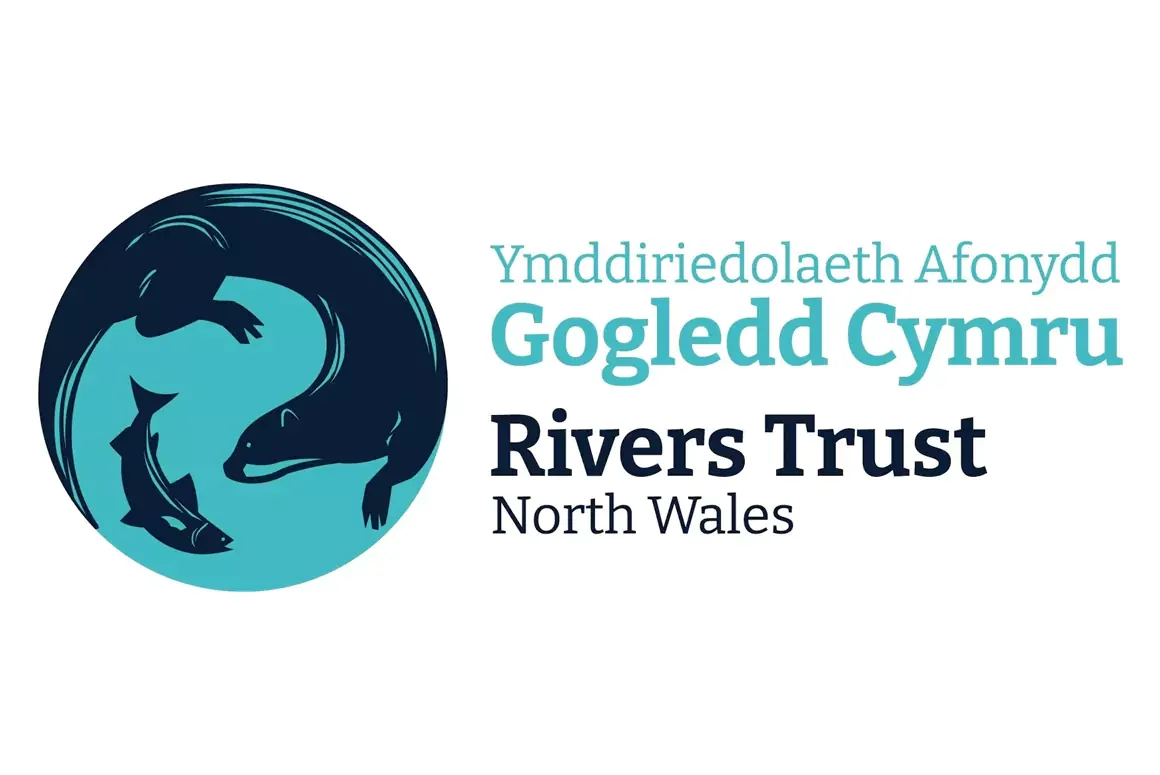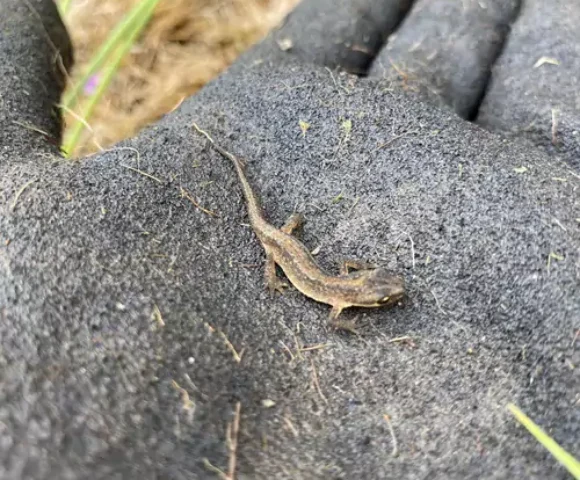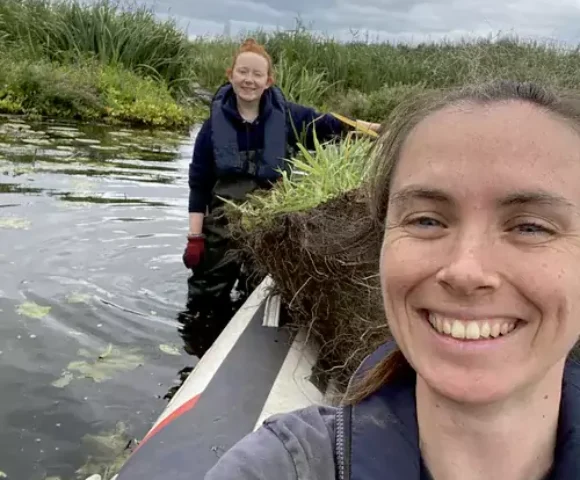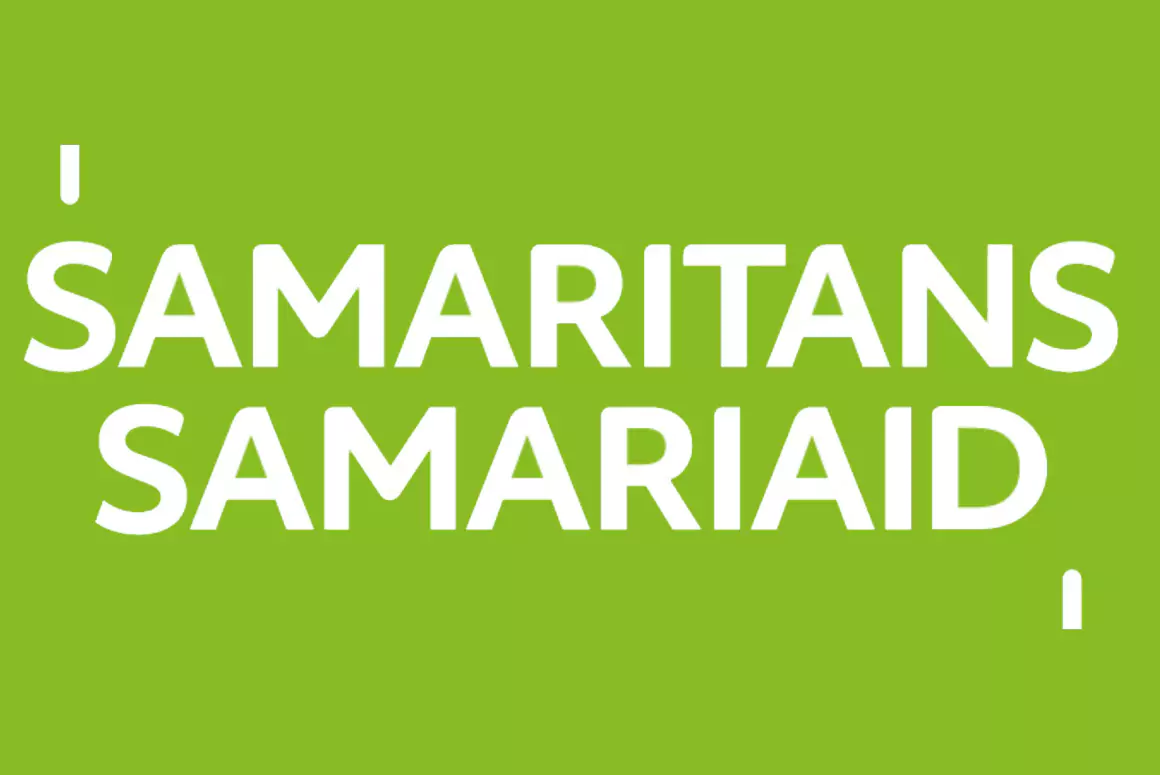News from North Wales Rivers Trusts looking at Fish passage in culverts, boosting wetlands and conserving freshwater pearl mussels…
Trialling New Systems to Improve Fish Passage at Dysynni Culvert
This month we will be trialing new flexi-baffles on a culvert in the Dysynni catchment. Thanks to support from South East Wales Rivers Trust, we’ve been supplied with flexi-baffles—special structures made from recycled plastic that have been designed to help fish migrate upstream more easily.
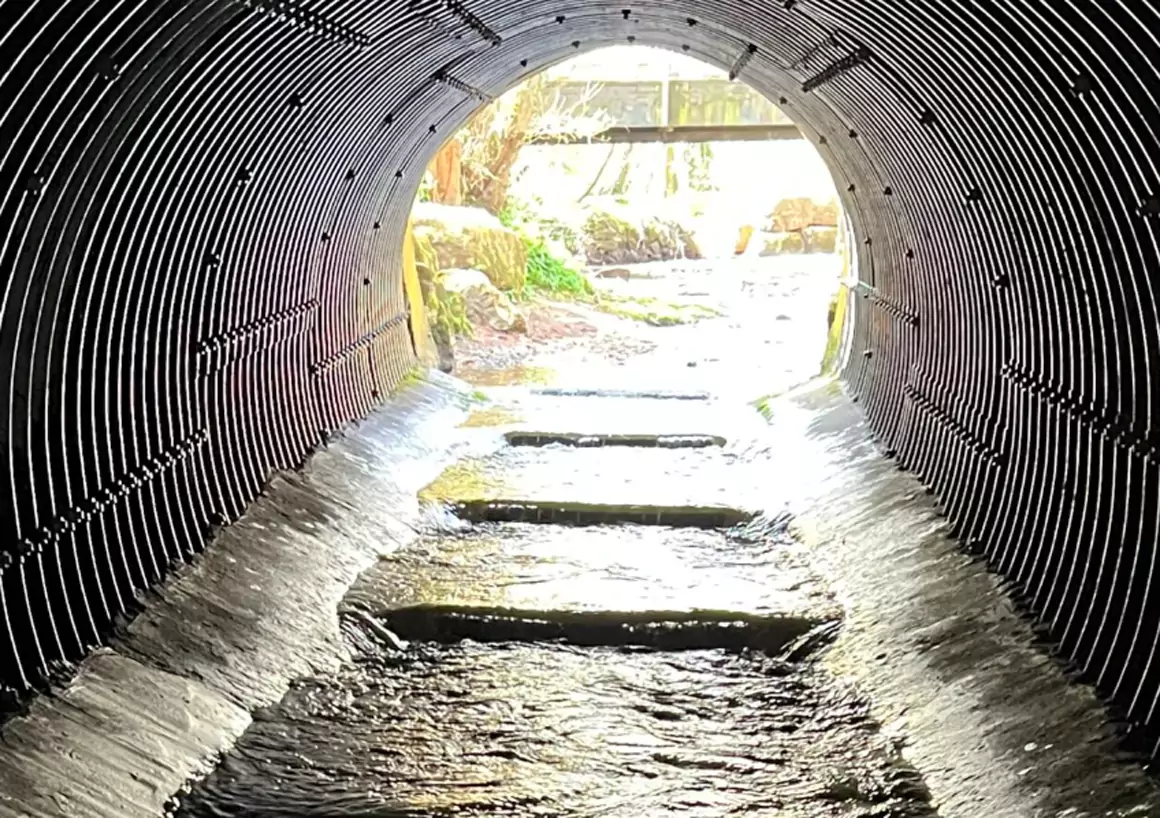
What’s the problem with culverts?
Many culverts act as barriers to fish migration. Their flat, concrete design means gravels are washed away during high flows, leaving behind a smooth chute of fast-moving water. These high velocities demand a huge amount of energy from fish, often preventing them from reaching important spawning grounds upstream.
How do flexi-baffles help?
Flexi-baffles work a bit like speed bumps in the water. By sticking out from the culvert floor, they interrupt the smooth flow, creating slower-flowing “resting pockets” where fish can pause and conserve energy. This is especially important for weaker swimmers like juvenile salmon and trout, who can make their way through the culvert in stages rather than in one exhausting effort.
The baffles also create turbulence, breaking up the high velocity into a more varied pattern that offers different microhabitats to suit fish of different sizes and swimming strengths. Because they bend during floods, they allow water and debris to pass safely, reducing the risk of blockages.
Keep an eye out for the update once the works are completed early this month.
Remedial Works at Llyn Penrhyn – Boosting Our Floating Wetland
This month we’ve been back out at Llyn Penrhyn on Ynys Mon to carry out some remedial works on our Floating Wetland project with Biomatrix. Although the original planting had established well in places, some of the vegetation has struggled due to exposure to the wind across the lake. To give the plants the best chance of success, we have added new sections of pre-planted matting and carefully relocated the wetland to a more sheltered spot on the water.
The new mats have been planted with a mix of wetland species, including flowering plants like Marsh Marigold, Purple Loosestrife, Water Forget-Me-Not and Water Mint.
While out on the lake we were delighted to see how quickly wildlife is responding. Newts and frogs were spotted among the vegetation, and the wetlands were buzzing with bees and birds making the most of the habitat. It’s a clear reminder of how important even small interventions can be for supporting biodiversity.
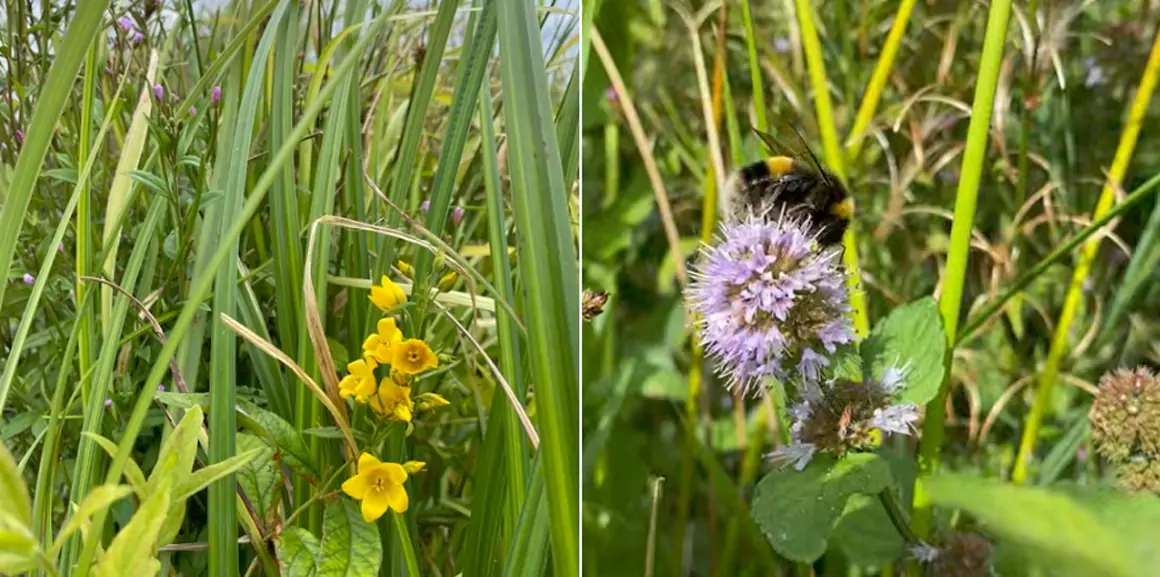
What the project is aiming to do
Floating wetlands mimic the function of natural reedbeds. Their dense roots hang into the water, creating shelter for fish and invertebrates, and providing surfaces where beneficial bacteria can grow. This helps improve water quality while supporting a rich web of life.
We’ll continue to monitor how the plants establish over the coming months. With the added shelter and diversity of species, we’re hopeful the floating wetland will flourish and bring long-term benefits for both wildlife and water.
Continuing Restoration Works For Fresh Water Pearl Mussels
Early this Autumn we will be continuing our work on the Afon Eden as part of the Sustainable Fisheries Mitigation project, delivered in partnership with Natural Resources Wales (NRW). This project builds on our long-term commitment to improving habitat for fish and freshwater pearl mussels — one of the UK’s rarest and most endangered species.
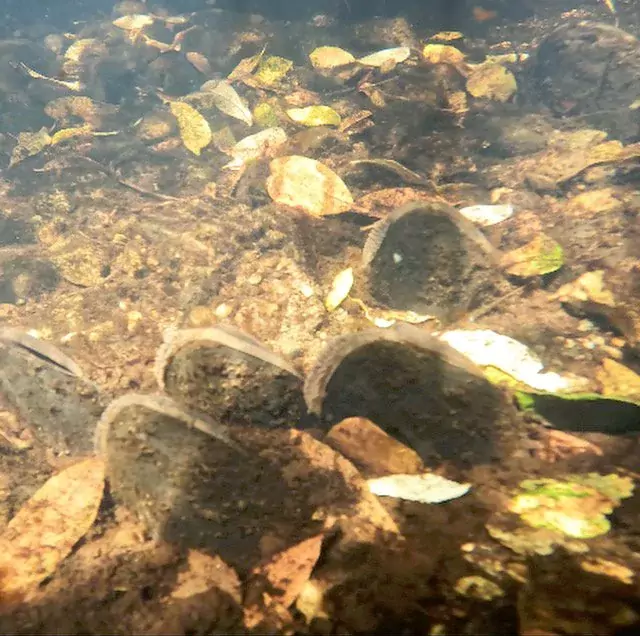
Creating better habitats
In the coming weeks, we will be:
-
Adding more spawning habitat to benefit fish and the mussels that depend on them.
-
Planting trees along the riverbank to provide shade, improve water quality, and create valuable wildlife habitat.
These actions help support the delicate balance needed for freshwater pearl mussels to thrive — clean, cool water and healthy fish populations.
Checking before we start
Before the habitat works begin, our team will be on site with NRW to carry out freshwater pearl mussel surveys. Using bathyscopes (viewing scopes for looking beneath the water’s surface), we’ll carefully check for mussels in the riverbed to ensure they are protected during the works.
Keep an eye out for updates and images from the project later this month, as we continue our mission to restore one of Wales’s most special rivers.


